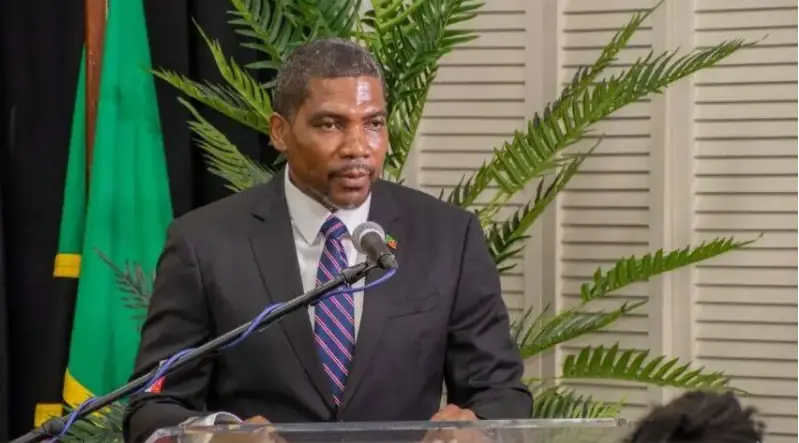India: Repealing Article 370 boosts economic progress in Jammu and Kashmir, says Reports
Repealing Article 370 in Jammu and Kashmir has increased financial openness and the region’s economic progress.
9th of May 2023

Jammu and Kashmir, India: In a significant development, repealing Article 370 in Jammu and Kashmir has increased financial openness and the region’s economic progress. After the decision to split J-K into two Union Territories and revoke its special status on August 5, 2019, there has been an unprecedented level of transparency in government.
The new system makes all aspects of government resource allocation, taxation, spending, and recruitment available online around the clock, increasing transparency throughout the process. The changes have made sure that every rupee spent on the ground is tracked and that funds are distributed directly to the populace without the use of any middlemen.
Until 2019, J-K had never heard of the new financial system implemented in the area during the last three years. The government of J-K enacted significant financial reforms that have brought the Himalayan region’s fiscal structure on a level with other progressive arrangements around the nation.
Financial systems in J-K are now on par with those of other states and UTs in the nation thanks to the implementation of transformative reforms like the Budget Estimation and Allocation Monitoring System (BEAMS), online bill submission through J-K PaySys, mandatory administrative approvals, technical sanctions, and e-tendering.
The “EMPOWERMENT” (Enabling Monitoring & Public Overview of Works being Executed and Resources for Meaningful Transparency) web portal, which houses all the works being executed in the UT and enables public oversight over all works under execution, is the first place in the past 70 years where people can watch works being executed in real-time.
The helmsmen have put a lot of effort into advancing sound financial management governance after 2019. It has been one of the government’s main goals. J-K’s financial system has developed into one of the most open systems ever.
The public has been informed about the construction projects going on in their neighbourhoods thanks to the publication of visual e-compendiums relating to projects finished under Back to Village, District Capex, UT Capex, and JKIDFC.
Digital payments, significant J-K Bank reforms, the release of key manuals on budget and audit, and 100% physical verification of work have all contributed to projects being completed on time and within budget. Over the past three years, Jammu and Kashmir’s financial system has been updated over the past three years. As a result, corruption has been eradicated at all levels.
The productivity of the J-K Bank has steadily increased for every 100 rupees in total earnings. Net Value Added, or NVA has been produced by the Bank in the amounts of Rs. 37.94 (FY 2019–20), Rs. 41.39 (FY 2020–21), and Rs. 42.88 (FY 202–22), respectively. Putting in place a fully new financial system is one of the most significant developments to have occurred in J-K since the Constitution’s transitory Article 370 was repealed.
Compared to the 9000 works done prior to 2019, the government completed 92000 works during the Financial Year 2022–23. The work being done in the Union Territory is 3–4 times more for the same amount of money and is being done without any difficulties.
About 3000 of the 43000 projects that Panchayats completed in 2022–2023 were finished before the new financing system went into force.
Between 2019 and 2023, the number of recipients receiving an old age and widow pension climbed from 4.5 lakh to 10 lakh. The Consumer Affairs & Public Distribution Department has purged as many as 11.5 lakh beneficiaries. Due to direct beneficiary transfers and the digitization of services, the money is getting to the intended recipients and there is no money syphoning.
One of the busiest agencies in the country is now the J-K Finance Department. It has succeeded in establishing financial discipline and completing all beneficiary-led programmes.
Implementing centrally funded programmes has enabled the average man to advance and receive all the benefits that were out of his reach due to Article 370’s popularity.
According to the officials, Jammu and Kashmir received Rs 7,655 crore from centrally sponsored initiatives in the fiscal year 2021–2022. In 2022–2023, the amount was raised to Rs 8,938 crore or nearly a 15% increase. For the first time since 1947, around 9,000 crore rupees were directly transferred through digital transactions to the average man in J-K.
Through a number of programmes, 2,63,595 people were employed in Jammu & Kashmir during the fiscal year 2022–23. Statistics support the growth that J-K has experienced since the Centre read down Article 370 in 2019. The so-called unique status was merely a roadblock that prevented the Himalayan region from experiencing prosperity and progress.
In the past, the Centre’s approval of J-K State monies regularly expired. Politicians in charge of J-K failed to show a desire to fill in the gaps and integrate the populace by putting in place the programmes that might have assisted regular citizens in establishing their lives and addressing uncertainties.
The Himalayan region’s previous financial structure was no longer useful. The main reason J-K remained backward and did not advance to the levels it ought to have after 1947 was because of Article 370.
The nation (Jammu and Kashmir) was an “issue” that needed to be resolved in the eyes of the leaders in Kashmir. They had propagated the idea that Pakistan and the terrorists it supports must be accepted before the economy of J-K can flourish. By breaking the 70-year status quo, the government led by Prime Minister Narendra Modi did a great benefit for the residents of J-K. Everything, including the financial system of J-K, fell into place as a result of the momentous decision to completely incorporate the Himalayan area into the Union of India.
Supporters of Article 370 and those who support terrorism have been rendered speechless by the developments that J-K has seen over the past three years because they no longer have anything to sell.
Latest
- PM Terrance Drew confirms over 95% of CARICOM Leaders to attend 50th Summit
-
Man and Woman Shot Dead in Belize Double Homicide -
Trinidad man shot dead in Bamboo Settlement after Carnival Fete -
Dr Terrance Drew strengthens regional ties with Bahamas, Jamaica and Barbados before CARICOM meeting -
Grenada announces fuel price increases effective February 18, 2026
Related Articles

5th of December 2024

5th of December 2024

9th of December 2024

29th of November 2024

22nd of November 2024

27th of November 2024

20th of November 2024

19th of November 2024
